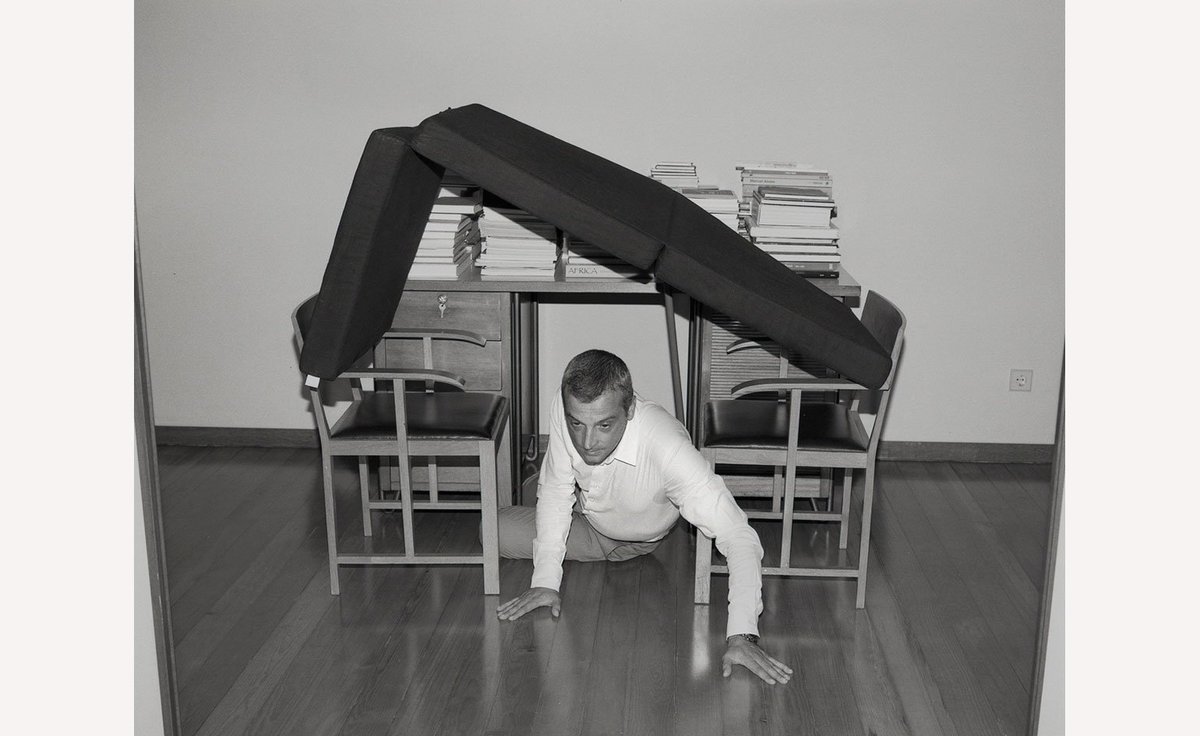Joanna is a polish photographer born in 1985 in Warsaw, now based in London. In 2013, she gained a Master Of Fine Arts from the Royal College of Art in London. Not long after in 2014 she created ‘Frowst’ as her first debut, which is a series of staged family portraits in a large black and white format, this collection went on to win the first book Award the same year.
‘FROWST which means stuffy or stiffly, captures the paradoxical nature of a home. Warm and cozy, a frowsty space can also feel airless and uncomfortable. The space of intimacy is often suffocating, but its comfortable security might trap us inside longer than we wish. It allows us to manifest our vulnerabilities and weaknesses under the safe roof of domestic convenience.’
The book is comprised of twenty-five photographs, arranged in a minimalist way, usually a photo per spread. I take inspiration from this as I want to have a few blank pages to create tension between images. Her images are tableaux as as she sets them up deliberately, creating mise-en-scene. At first sight they are simple, casual pictures but soon reveal the surgical precision of the staged situation.
http://joannapiotrowska.com/ReflectsonFrowst.html


Her images first striked me as uncomfortable, the way a fully grown woman was sitting on an older mans lap. The theme throughout the book is consistent as she recreates relations within a household. She uses domestic settings such as a kitchen or bedroom as the background for these unsettling images. The black and white adds to the sense of reminiscing and remembering a time in which we were young and certain situations weren’t awkward or weird at the time. I am going to use black and white for the majority of my images as they represent memories from my past. The book highlights the carelessness of being a child, the lack of social consciousness we had at this early stage of life. I am going to use her concept to recreate memories from my childhood for images in my photo book. Her theme of family fits perfectly into my book which surrounds the theme of divorce. In her book she creates forts out of cushions and chairs as you did as a child and places the subject underneath them. These images create a sense of playfulness and reminiscing, but there is more depth to their meaning. “The shelter is like a fortress for our bodies, an extension of our selves. It is about how we choose to live, what we’ve surrounded ourselves with,” she says. “It’s also a little absurd that an adult is building this temporary, fragile structure. It isn’t really giving us any protection because it’s so ad hoc.” Joanna is taking a childhood past time and relating it to our behaviour as adults and how anything we do has a effect on us. The forts we once made weren’t just for fun, they were security we build for ourselves.

